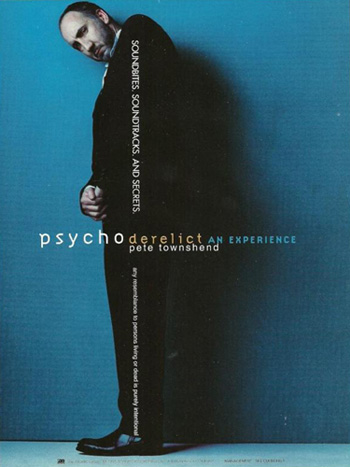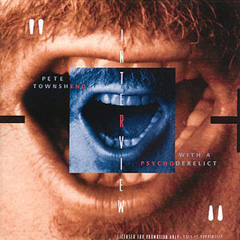Psychoderelict
Psychoderelict was a conceptual music project released in 1993 that mixed spoken word drama with songs and musical interludes. It was presented in a similar manner as a radio play, with actors portraying the characters onstage between songs during the live performances. The story features the character Ray High, a washed up rock star who has lived as a recluse for a couple of years dreaming about a musical project that he abandoned years before called Gridlife. The storyline draws on elements and ideas from Pete Townshend’s abandoned Lifehouse project from 1970-71, and includes synthesizer demo recordings from that period which are interspersed throughout the Psychoderelict production. The Ray High character was brought back years later in The Boy Who Heard Music, a novella that Pete posted on his website in 2005, which turned into the mini opera Wire and Glass on The Who’s 2006 album Endless Wire.
"Now I’m going to do this Psychoderelict thing that I’m dragging around America at the moment. Let me tell you something about this. This is a thing where we have actors on the stage, we have some projections, we have some story, we have some drama, but mainly it’s about a way to get across and get you into the songs which are as always, songs. The songs have a number of shades to them, and that’s really what is important today is to actually try and see through the piece that you see before you and enjoy it for what it is. It’s not meant to be a deep thing, but let the music get to you, and let the ideas behind the music get to you, and think about what’s happening in all of our lives. I know you think I’m a stratified individual. I live in a little house, and I have a little family, and I read the fucking newspapers and wonder what’s happening, and that’s what these songs are about. Where our future is gonna be and how we are gonna go on from here. I know who I am!" - Pete Townshend, intro to Psychoderelict concert in New York, 1993
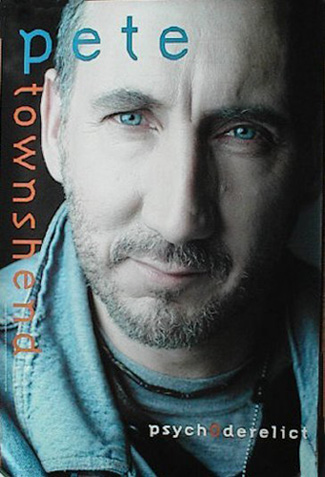
Track List
01. English Boy
02. Meher Baba M3
03. Let's Get Pretentious
04. Meher Baba M4 (Signal Box)
05. Early Morning Dreams
06. I Want That Thing
07. Dialogue introduction to "Outlive The Dinosaur"
08. Outlive The Dinosaur
09. Flame (Demo)
10. Now And Then
11. I Am Afraid
12. Don't Try To Make Me Real
13. Dialogue introduction to "Predictable"
14. Predictable
15. Flame
16. Meher Baba M5 (Vivaldi)
17. Fake It
18. Dialogue introduction to "Now And Then"
19. Now And Then (Reprise)
20. Baba O'Riley (Demo)
21. English Boy (Reprise)
22. Psychomontage (bonus track)
"I wanted to write songs about the nature of truth, how it's changing in the modern world, how computers--databanks and computer preservation of newsprint in particular--are elevating fact to a level of truth. Facts, as I say on the record, don't always lead to the truth. They should, but they don't always." - Pete Townshend, Guitar Player, Sept. 1993.
The Music
"I use my usual group of musicians. I like to have the same people that I used on 'Chinese Eyes.' Jody Linscott on percussion, Peter Hope-Evans on harmonica, John Bundrick 'Rabbit' on keyboards, and, if I can get them, Mark Brzezicki or Simon Phillips on drums, Pino Palladino or somebody like him on bass, and nowadays I like to have a guitar player around. We kicked off with that group of people and they played along with the things that either I was doing in the studio or that were on tape. Then I started to finish the tracks off. I suppose I play really about 80% of the music on it, because some of the stuff they played, I don't. (laughs). But I like them there for spiritual reasons." - Pete Townshend, Interview with a Psychoderelict CD, 1993.
Musicians
Pete Townshend (songwriter, vocals, guitar, synthesizer, organ)
Gavin Lewis (guitar)
Phil Palmer (guitar)
Adam Seymour (guitar)
Jaz Lochrie (bass, co-author "Flame")
Paul 'Tubbs' Williams (bass)
John "Rabbit" Bundrick (keyboards)
Josh Phillips-Gorse (organ, co-author "Flame")
Mark Brzezicki (drums, co-author "Flame")
Jody Linscott (percussion)
Peter Hope-Evans (harmonica)
The Kick Horns (Horns)
Jon Astley (Fairlight synth drums, co-author "Fake It")
Ian Broudie (synthesizer programming)
Simon Rogers (synthesizer programming)
Billy Nicholls (vocals, co-author "Fake It", "Psychomontage")
Chyna (vocals)
Cleveland Watkiss (vocals)
Tessa Niles (featured vocalist)
Ian Wilson (featured vocalist)
Simon Townshend (co-author "Flame", vocal on bonus track demo)
Jon Lind (co-author "Fake It", "Psychomontage")
The Drama
"I decided to enlist my friend Richard Barnes who wrote this book, 'Maximum R&B' about The Who back in '82, and I asked him to consult. So I wrote scripts and I'd throw them at him and he'd blue pencil them and tell me that was happening and that was happening and we honed it down to the edited form that you have...I've workshopped the writing of the play with actors. Originally there were a lot more characters. I think there were about ten. I started to hone them down. We consulted with various actors. Michael Ceveris who is the lead in Tommy came over and helped me with some of those workshops. He actually for a while had a part on the record but, unfortunately, he was one of the parts that I finally cut. Jan Ravens, who was the woman who plays Ruth Streeting, was the most useful in workshops because she's a radio producer, actress and a writer. She was really valuable, helpful to me." - Pete Townshend, Interview with a Psychoderelict CD, 1993.
"I suppose I was much encouraged by the success of Tommy in its first theatrical incarnation in La Jolla under Des McAnuff’s direction in late 1992. I had only agreed to work on the production after a bad bicycle crash in 1991 had damaged my wrist, and I had had to put a hold on a series of songs I was working on at the time. A few of these songs had been inspired by a story called The Glass Household that I had shared part of with Robert McCrum, the editor of my short stories in Horse’s Neck. He said I had found ‘a voice’, and I began to write what I thought might one day become a novel. As always, writing fiction, doing charity work or simply going on holiday all seem to stimulate my music writing and I decided, as soon as my wrist was better, to quickly gather everything I had to make a new record. I was working on it all the way through 1992 and into the first part of 1993. My best friend Richard Barnes came in towards the end to help me tighten it all up, and when the profits started to roll in from the success of Tommy on Broadway I realized I could afford to put up a rock-theatre version. It was an incredible experience for all of us, and great fun. Everything is autobiographical in some way, but the songs from Psychoderelict come from a snapshot slice of the Glass Household story that was indeed partly about my life in rock, but also partly about the future of the internet – a look at its potential dangers. I have since completed the writing side in my novella The Boy Who Heard Music that - by rights - would include quite a few songs from Psychoderelict if it was ever produced as play or film. Such a story would also include music from the Who’s Lifehouse experiments, and hopefully new writing. I suppose since 1993 I have been waiting for the emotional strength to complete this piece." - Pete Townshend interview, October 2005
Cast
Pete Townshend as himself
John Labanowski as Ray High
Jan Ravens as Ruth Streeting
Linal Haft as Rastus Knight
Lee Whitlock as Spinner (voice)
Deirdre Harrison as Athena (voice)
Additional actors: Allan Corduner, Dee Lewis, Michael Nicholls, Paul Townshend, Simon Townshend, Suzy Webb
Richard Barnes (story consultant)
Julia Duff (casting)
Story Synopsis
Veteran rock performer RAY HIGH has lived for about two years as a recluse in plush isolation, dreaming about Gridlife, a musical project he abandoned in the '70s. Witty, cynical, clever, and ambitious music critic RUTH STREETING devotes an edition of her successful network radio show, Streeting's Street, to attack Ray, whom she despises.
Ray's manager, RASTUS KNIGHT, is unaware of Gridlife and is frustrated that Ray has lost interest in recording and performing. Meeting Ruth in a nightclub, he confides his problem to her. Ruth surprises Rastus by claiming that, of all people, she could find a way to inspire Ray and resurrect his career. When Rastus offers her a percentage, she hatches a plot.
Meanwhile, we learn that Gridlife is a futuristic musical about a global Virtual Reality system which provides its subscribers with entire lifetimes of karmically tailored experience. ATHENA, the controller of the Grid, uses a jingle to promote her Gridsuits as safe havens from the heavily polluted atmosphere. But the young hero, SPINNER, is concerned that Athena has too much power and is distorting the truth. He plans to expose her and lead a rebellion.
Back in real life, Ruth believes her attack has forced Ray out of isolation: he appears in a London club with Rastus. Ruth returns to the fray, broadcasting a second public assault, with increased venom.
Around the same time, Ray receives a letter from a young American fan, ROSALIND NATHAN, who encloses a provocative photo. She wants to be a singer. Ray recognizes something in her and begins a correspondence, helping Rosalind with her problems and inducting her into the mysteries and mechanics of stardom.
Ray sends Rosalind a song which he says is from his Gridlife project. She returns a tape of her singing. He ends the correspondence, in his last letter revealing his innermost secret.
At this point, Ruth informs Rastus that her plan is nearing its climax. During her next radio show, she viciously lays into Ray. Ruth has obtained all his letters to Rosalind, and she twists and distorts the contents, insinuating that Ray was sexually exploiting Rosalind, an innocent, naive, underage fan.
Ruth blatantly exploits the situation, creating controversy about Rosalind, who, with Ruth's help, has just released a record. A huge media furor follows, and the "Porno Pen-Pals" scandal looks as though it could destroy Ray.
Later, Ruth shows up at Ray's house for an encounter with Rastus, during which she claims credit for both Rosalind's hit and the resurrection of Ray's career. Rastus is overwhelmed at the scale of Ruth's deceit. Ruth collects her commission from Rastus and is impressed at the amount Ray is now earning as a result of the scandal.
Ray finally gets to record his Gridlife project. We hear Spinner, in a scene from Ray's dream, explain that everything in the Universe is composed of music and vibrations, and that soon the whole world will experience their adventure. Ray's story closes as he compares the deceit of today with the optimism of the time when he was composing Gridlife. He longs for a return to the values and visions of the early '70s.
1993 Tour Dates
The Crystal Room, Mayfair Hotel, London July 2
Massey Hall, Toronto July 10
Beacon Theater, New York July 12
Beacon Theater, New York July 13
Tower Theater, Philadelphia July 15
Arie Crown Theatre, Chicago July 17
Wiltern Theater, Los Angeles July 29
Wiltern Theater, Los Angeles July 30
Community Theater, Berkeley August 2
Community Theater, Berkeley August 3
Copley Symphony Hall, San Diego August 4
Brooklyn Academy, New York August 7
Great Woods Amphitheater, Mansfield August 9
Tower Theater, Philadelphia August 10
Jones Beach Theater, Wantaugh August 12
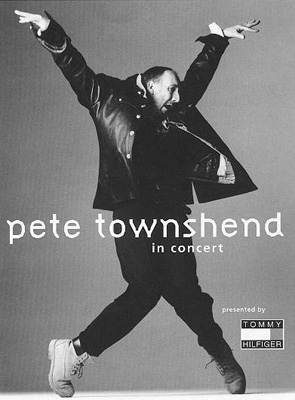
Press
MusicKO - album review
Concert Overload - concert review
Psychoderelict Press Kit
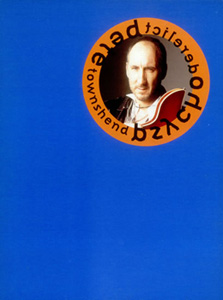
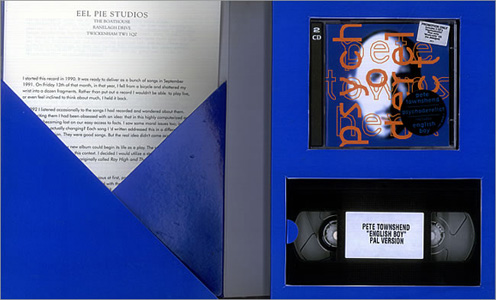
Pete's introduction in the press kit
"I started this record in 1990. It was ready to deliver as a bunch of songs in September 1991. On Friday 13th of that month, in that year, I fell from a bicycle and shattered my right wrist into a dozen fragments. Rather than put out an album I wouldn't be able to play live, or even feel inclined to talk about much, I held it back.
In '92 I listened occasionally to the songs I had recorded and wondered about them. While writing them I had been obsessed with an idea: that in this highly computerized age the truth is being lost in our easy access to facts. I saw some moral issues too; is the nature of truth actually changing? Each song I'd written addressed this in a different way. It was a good notion. They were good songs. But the real idea didn't come across.
Heart Of Darkness, the best known work of Joseph Conrad, first reappeared in modern life in the '30s as an Orson Welles radio play. I think he may also have intended the play to be a treatment for a movie. Many years later, Francis Ford Coppola used the story once again as the basis for Apocalypse Now. It struck me that my new album could also begin its life as a radio play. The songs might be better served and clearer in this context. For a while I toyed with the idea of using my own favorite Conrad story, Nostromo, as the basis for my play. But let's fact it, I ain't Francis. I decided I would instead utilize a small story of my own I had been working on since 1989. It was originally called Ray High and The Glass Household.
Later, with the help of my old friend, Richard Barnes, I hit on the proper rock and roll form for this thing. IT'S GONNA BE A FUCKING CONCEPT ALBUM! A CD-rama; Headrock; Rockertext; Cock-o-text; Pop-o-scope; Cyberopera; Yobbogram; Grid-o-gram; Vertigram; Matrix-o-gram; Gramodream; Talkup; Poptalking-Dream-o-gram.
The triangle of characters you meet in the play are metaphors for real people. RAY HIGH is a rock artist (he might in fact be several rock artists), but also a complex child. RUTH STREETING represents the press, the political establishment and the audience all rolled into one, but also the critical and loving mother, ultimately forgiving. RASTUS KNIGHT is the symbolic father, always absent even when he's around; ambitious, stupid and heroic in pursuit of opportunity and sustenance for his kids. Finally, tired and apologetic: doing his best.
That's the story of how PsychoDerelict took its final shape. If you are a rock artist, work in radio or press, or you're a manager or an agent - don't be hurt by the story I've written. I don't put myself above you. I am certain that you feel pissed as I do about what's happening to the world. Look at it! To borrow an image from Somerset Maugham as one of his imperious heroines looks at a cholera-stricken corpse: "It's hard to think that not so many years ago he was just a little boy tearing down a hill and flying a kite."
As a new convert to Eric Bogosian, I now believe tragedy can only really be sublimated in comedy. For years, probably because of a life with Keith Moon, I had started believing it was the other way around. These new songs are for you if you still believe in truth, or you still believe you can find truth if you try hard enough. Whether you read newspapers or listen to the radio, you probably think that what you suspect is what is really going on is - in fact - close to the real truth. I know I do. We need to be told.
Talk to me. I need to know. Talk to me soon. Tell me a fucking joke for God's sake."
- Pete Townshend, Psychoderelict Press Kit, 1993.
The Recordings
"It was made at my home studio. It was made on a boat which is part of my studio complex near my house on the river Thames. It's a big old Dutch barge and that's my demo studio now." - Interview with a Psychoderelict CD, 1993.
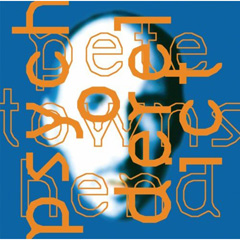

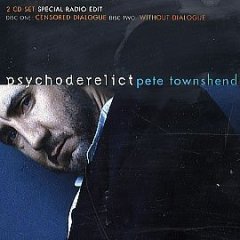
Production Credits
Pete Townshend (producer)
Bob Pridden (sound engineer)
Andy MacPherson (additional engineering)
Bruce Davies (sound effects, additional engineering)
Paul Stevens (additional engineering)
Nigel Walker (additional engineering)
Roger Knapp (technical supervisor)
Jeremy Allom (mixing)
Jamie Lane (additional mixing)
Songs primarily recorded Dec 1990 - Sept 1991
"I delivered an album of tracks to Virgin in September '91 with a plea to not put it out. I said, 'It's here. I'm subject to contract, but please don't put it out,' because I had a bike accident and I couldn't play the fucking thing. They respected that." - Keyboard magazine, Oct. 1993.
"I had written a bunch of songs, but I thought, what the fuck am I doing making records, anyway? What's the point? I don't belong here anymore. I'm not willing to do what is necessary. But still, I was about to deliver the songs because they were done. Then I had a bike accident and fucked up my hand. It took a year to heal, so I had all that time to think. And I decided, fuck it, I'm not going to put the record out. It doesn't mean anything. Before the accident I would have delivered the record. I think it would have got some interest. I would have carried on about what it was supposed to be about, and people would have thought, Fine. The guy's getting old. Then I would have announced to the record label that I really didn't want to deliver the last couple of albums in my deal. And that would be it." - Playboy, Feb. 1994
Drama written and recorded Nov 1992 - Feb 1993
"[after the bike accident] I had a year to sit there, recovering, and I thought about why I was so bored and realized that it was because I forgot why I do this for a living. Then I worked on the Tommy play and again became inspired about the form. I went back and listened to the new songs and asked what I was really writing about. I remembered that when I wrote the songs I was thinking about my son and thinking I wanted an honest vision of his future. That's what the songs were about" - Playboy, Feb. 1994
"...when I discovered it [presenting the songs with a story] I really did whoop for joy because I thought, 'This is it. I don't have to sit and have my work dismissed because it's self-analytical now.' I can actually create a voice in a context and people will have to address it. They will have to address it whether or not they think I'm full of shit..." - Musician, July 1993
Released in the U.K. 4 June 1993 (does not chart). Released in the U.S. June 15, 1993. Peaks at #118 in the Billboard charts. At the time of release a double CD promo is sent out consisting of the album with the dialogue censored and a CD of just the music. Commercial release of Psychoderelict - Music Only follows Sept. 14, 1993 (does not chart).
"His record company bosses were confidently expecting the album to sell five million copies and allocated a marketing budget to match. In the event it sold fewer than 200,000 copies worldwide, the worst result of Townshend's career. 'I abandoned my recording contract after Psychoderelict,' Townshend says. 'I'd always told myself that when I sold less than 200,000 I'd stop. I had imagined myself triumphantly arriving at the Edinburgh Festival with it, so it was a bit of a blow.' - The Times, 6 Nov. 1998.
Track Details
1. English Boy (dialogue 5:07, non-dialogue 4:49) (Pete Townshend) Windswept o/b/o Towser Tunes, Inc. (BMI)
"In 'English Boy' there is an attack on what I call the reducer, which is that whenever there is a difficulty in society, particularly in British society, we go back to our pre-colonial, Victorian, Edwardian tradition and we bad-mouth the young man, the very man we turn to to blow up the Germans or the Iraqis or whoever it is we want to blow up this month...I think where 'English Boy' became the pinion song of the whole piece is that it encapsulated Ray's anger, and this was the anger that I kept feeling from the boys and the men of my generation, the postwar people, the emasculated generation, the boys with the toys, with no jobs, no tools, no function but lots of toys." - Musician, July 1993
"I don't think we have a rock 'n' roll voice which is loud enough to protest at the way that boys are put on soapboxes and people say, 'There you are. That's what's wrong with society. These guys, in the wooly hats, in the wooly scarves on the football terraces. They carry knives, you know! That's what's wrong with society!" It's society that's wrong with society. That's what the song's about. The boys are a product of it. I think what was so great about the generation that I was brought up with, why we were so lucky, was that we were the first people to kind of loudly protest and they had to listen. But they've stopped listening now." - Interview with a Psychoderelict CD, 1993
Released as a 45 in the U.K. ("English Boy" [non-dialogue]/"English Boy" [dialogue]) and as a CD single in the U.K., Australia, and Germany. A promo CD single was issued in the U.S. None charted.
2. Meher Baba M3 (dialogue 3:31, non-dialogue 3:39) (Pete Townshend) Towser Tunes, Inc.; Suolubaf Music; ABKCO Music, Inc.; Careers BMG Music Publishing (BMI)
"I went to my archive, which is not quite a Frank Zappa scenario, but it's pretty cool. I've got alI of the Who stuff - that is, I look after it for the band - and all of my own demos. I listened to the Lifehouse demos. It was fucking fabulous stuff that I had forgotten about. It surprised me because I thought I had heard it all when I did the Scoop collections of demos. Somehow I missed two or three wonderful things. I got very energized." - Keyboard, Oct. 1993
From the press kit: "On the album, the songs associated with Gridlife are prefixed "Meher Baba" and originated on eight-track demos first recorded in 1970/71 for Lifehouse."
3. Let's Get Pretentious (dialogue 3:36, non-dialogue 3:27) (Pete Townshend) Windswept o/b/o Towser Tunes, Inc. (BMI)
"'Pretentious' was also the idea that for the English boy, for the little kid who was throwing rocks and is now a man without a function in society, if you're lucky enough to be a rock 'n' roll star, you have a function, but if you don't, you don't. And when you try to go outside that you're both accused of and guilty of a degree of pretentiousness... The song is not to say, 'Don't call me pretentious because I got in there first.' I'm not trying to criticize the critic. I'm just saying that you have to be fairly courageous to deal with a new idea or something that might actually be out of your scope. If you don't artistically try to struggle with new ideas, and meet new people, I don't think there's any point in living." - Musician, July 1993
"I've never had a problem with people that call me pretentious, never. I don't regard it as an insult (laughs). But in the context of the piece, the song is actually about what Ray feels is the setting for his manager and the journalist's lifestyle. He feels that it's frippery, it's fluff, it's puff to use the modern expression." - Interview with a Psychoderelict CD, 1993
4. Meher Baba M4 (Signal Box) (dialogue 2.23, non-dialogue2:42) (Pete Townshend) Towser Tunes, Inc.; Suolubaf Music; ABKCO Music, Inc.; Careers BMG Music Publishing (BMI)
"What is great about the demos is not just that they were about dreams and visions, which are now possibilities thanks to computers and technology, but that they were recorded on eight-track analog tape and sound fucking great. I jumped on the idea." - Keyboard, Oct. 1993
Recorded late 1970 - early 1971.
5. Early Morning Dreams (dialogue 3:54, non-dialogue 3:06) (Pete Townshend) Windswept o/b/o Towser Tunes, Inc. (BMI)
"The problem that Ray High has is that he has a creative vision, he has something that he wants to...he has an idea that he thinks has been lost in the sequins and glitter and nonsense of the Seventies, a dream that was rooted in the Sixties, a good dream, a good idea, a good take, a good feeling about what rock 'n' roll was going to do, what music was going to do, what young people were going to do in that first flush of Sixties' rock which was somehow forgotten in the Seventies. What I am asking the audience to do in the story is to look at what Ray is really saying when he is saying 'I can't do it again, I can't discover it all over again.' You only get one opportunity to do something for the first time and somehow we blew it." - Interview with a Psychoderelict CD, 1993
6. I Want That Thing (dialogue 3:58, non-dialogue 4:04) (Pete Townshend) Windswept o/b/o Towser Tunes, Inc. (BMI)
"I started to look at the idea that the moral consequences of art have never been properly examined. When you start to say to somebody, 'Listen, I can help you live your life - your view of things is inferior to mine,' which is what the artist says, the artist is imperious and elevated. If you say, 'Listen, you can have a good life, but if you come to me I can give you a better one,' that implies that you're taking responsibility for somebody's life. I really felt that there was potential for a karmic consequence." - Keyboard, Oct. 1993
7. Dialogue introduction to "Outlive The Dinosaur" (0:32) (Pete Townshend) Windswept o/b/o Towser Tunes, Inc. (BMI)
8. Outlive The Dinosaur (dialogue 3:24, non-dialogue 4:23) (Pete Townshend) Windswept o/b/o Towser Tunes, Inc. (BMI)
"A song such as 'Outlive the Dinosaur' comes out and people think I'm writing about how it feels to be a dinosaur. But the song is actually about outrunning history. It's not a nod in the direction of Jurassic Park or the Rolling Stones. It's about trying to not become extinct, for heaven's sake." - Playboy, Feb. 1994
"We're probably the only time-conscious animals on the planet. When you look in the mirror as you grow older you see this person that you regard as yourself growing old, but you start to move away from him. You start to kind of subtract yourself from that person. Nonetheless one day you look in the mirror and you see this decaying individual and you cry. And the person sitting next to you says, 'That's self-pity.' You're as young as you feel. You've got to hang on to the end. You've got to believe. My belief is that you're not crying for yourself but the child you once were and you're crying for youth, which is an indeterminate and something you can't have. That's what Ray is doing." - Musician, July 1993
Pete recorded a demo version of this track Dec. 12, 1990. It was released on the album Scoop 3, Dec. 11, 2001.
9. Flame (Demo) (1:07) (Simon Townshend, Josh Phillips-Gorse, Gavin Lewis, Mark Brzezicki, Jaz Lochrie) Rock and Roll Stew Songs (ASCAP)
10. Now And Then (dialogue 4:25, non-dialogue 4:13) (Pete Townshend) Windswept o/b/o Towser Tunes, Inc. (BMI)
"It is the notion of infatuation, when you fall in love with somebody [Pauses]. This is painful. When you fall in love with somebody, do you really know who they are? Do you actually care? We joke about it. We shout, 'I love you,' to girls on the street, and we fucking mean it. That's what is so pathetic. Sometimes what you find can be wonderful, but it can also be a nightmare." - Keyboard, Oct. 1993
11. I Am Afraid (dialogue 4:34, non-dialogue 4:22) (Pete Townshend) Windswept o/b/o Towser Tunes, Inc. (BMI)
"What struck me when I first got this sequence in the middle worked out properly is that 'I'm Afraid' becomes a song for Ruth, the journalist. She suddenly realizes that she's afraid of what she started. There was a period when I was like that. In rock 'n' roll, I was afraid of the consequences. It was a great business to be in, but I used to look at Keith and think, 'This guy is gonna die,' and I was afraid for him. And I still struggle with, as I think Roger does; our complicity in that. It was useful for us to have this crazy man in the band. It got us publicity. It got us inches. And he eventually died. And that song suddenly, for me, got life breathed into it." - Musician, July 1993
"Some of the songs I wrote for 'Psychoderelict' are among the most profound I've written. 'I Am Afraid,' a song about fear for our children's future, and our constant abnegation of our duty to change, and thus our despicable hypocrisy, went as deep as I could go as a writer -- I could never have written it for my own voice, but my screwed-up hero could sing it. - MSN interview Mar. 1, 2007
A demo version, recorded 11 Dec. 1990, was released on the album Scoop 3, Dec. 11, 2001.
12. Don't Try To Make Me Real (dialogue 2:59, non-dialogue 3:30) (Pete Townshend) Windswept o/b/o Towser Tunes, Inc. (BMI)
"'Fake It' and 'Don't Try and Make Me Real' were written together. What they were supposed to be was a conversation between a man and a woman and the way men and women seem to fall into stereotypes of requirement in relationships. The man says, often, 'don't try and put me in a pocket.'"- Interview with a Psychoderelict CD, 1993
"I see that as a song about the process of the star system that exists between the performer and the audience. So I suppose the press is somewhere in the chain." - Musician, July 1993
"Don't Try To Make Me Real" was issued in the U.S. as a promo CD single in late 1993. It was the only other track from the album issued in a single format.
13. Dialogue introduction to "Predictable" (0:34) (Pete Townshend) Windswept o/b/o Towser Tunes, Inc. (BMI)
14. Predictable (dialogue 2:16, non-dialogue 3:11) (Pete Townshend) (Pete Townshend) Windswept o/b/o Towser Tunes, Inc. (BMI)
"'Predictable' is about somebody saying, 'What I like about you is that I know what's going to happen. I know what's going to happen. I know I'm not going to have an orgasm (laughs). But I like that. I know how it's going to feel. I know how it's going to go today. That is what makes it exciting is that I'm certain that it's going to go a certain way,' and often it doesn't, maybe. I don't know." - Interview with a Psychoderelict CD, 1993
15. Flame (dialogue 2:41, non-dialogue 4:16) (Simon Townshend, Josh Phillips-Gorse, Gavin Lewis, Mark Brzezicki, Jaz Lochrie) Rock and Roll Stew Songs (ASCAP)
"I don't know whether Ruth and Rastus have pulled off a coup, whether Ray knew that Ruth was Rosalind or Rosalind was Ruth. Whether in fact there really is a Rosalind. We don't know that. We don't know whether Ruth has really used the song that Ray sent or not. We don't know whether 'Flame,' the song that we hear Ruth sing is actually sung by Rosalind and she's taken Rosalind's song and paid her off in San Francisco or shot her. We don't know whether Ray wrote it. None of these things are stated. That's deliberate. I want to leave that open. That's for you to decide." - Interview with a Psychoderelict CD, 1993
16. Meher Baba M5 (Vivaldi) (dialogue 2:35, non-dialogue 2:41) (Pete Townshend) Towser Tunes, Inc.; Suolubaf Music; ABKCO Music, Inc.; Careers BMG Music Publishing (BMI)
"The big debate for me that is central to the original Lifehouse story is not a debate about truth and fact, but a debate about what happens when you turn experience into data, in the way that truth has been turned into data and frozen. You get a view of history and the past...Unless you're a very careful and earnest researcher, you have to get up off your ass and talk to people when you write books. You can't make the mistake of thinking you can put together a book by plugging your Mac into a modem. I'm afraid that so many people think the truth is already in the data banks, but it's not." - Keyboard, Oct. 1993
Recorded late 1970 - early 1971.
17. Fake It (dialogue 3:29, non-dialogue 3:38) (Pete Townshend, Jon Astley, Billy Nicholls, John Lind) Windswept o/b/o Towser Tunes, Inc. / A Sharp Publishing / Twickenham Tunes, Ltd. / Big Mystique Music / EMI Virgin Songs (BMI)
"In 'Fake It' a woman is saying, 'I don't care if you really love me. Bring me flowers. Touch me. Hold me. It's now that matters to me. You're passing through my life from one end to the other. Grab me as you're passing. I don't care if it's not true. You tell me anyway.' In the play, 'Fake It' becomes about information, about law, about justice, about orgasm rather than just, 'say you love me and that will get me through the day.'" - Interview with a Psychoderelict CD, 1993
"When you relate to somebody who is an artist, who is involved in your life, there is a sense that...and the song that exemplifies it in Psychoderelict is 'Fake It'. It's like 'Actually, I really don't care'. It goes back in my career to somebody saying 'jump, jump, jump, jump, jump... smash a guitar' and me saying 'but this is crap' and them saying 'but we don't care, do it anyway'. - Pete's website interview Nov. 2, 1999
18. Dialogue introduction to "Now And Then (reprise)" (0:32) Windswept o/b/o Towser Tunes, Inc. (BMI)
19. Now And Then (Reprise) (2:58) (Pete Townshend) Windswept o/b/o Towser Tunes, Inc. (BMI)
20. Baba O'Riley (Demo) (1:20) (Pete Townshend) Towser Tunes, Inc.; Suolubaf Music; ABKCO Music, Inc.; Careers BMG Music Publishing (BMI)
"I wrote some quite beautiful songs for Psychoderelict, and as I listened to them on the finished CD, I realised I had been more deeply wounded by the failure of Lifehouse than I had previously been able to admit. My problem was not simply one of failure to let go of the idea, or an unwillingness to accept defeat. I had been, in a sense, humiliated and broken by its non-appearance as a drama." - The Richmond Review, Dec. 1999
Recorded late 1970-early 1971
21. English Boy (Reprise) (dialogue 7:04, non-dialogue 7:05) (Pete Townshend) Windswept o/b/o Towser Tunes, Inc. (BMI)
"What I think it really is, what I think Psychoderelict is, is 'Watch out. We've been down this pathway before.' There was a revolution in the Seventies. It was driven by psychedelic drugs. It changed society. A lot of those changes were fun and a lot of them were lasting but most of them were really, really quite horrible, I think. Certainly it produced wonderful music for a short period of time but in the end it produced this undermining of what I believe was so wonderful about early rock 'n' roll; the fact that it gave people who were fairly inarticulate and frustrated and lost and isolated, a voice. I'm asking, 'Is Ray right to long for that?' I don't long for it." - Interview with a Psychoderelict CD, 1993
Bonus Tracks
"Sadly, I lost a lot of good songs that didn't get used on the record...They just didn't fit. I think this is a black art. I had to accept the fact that I was working for something very serendipitous. I was going to pull from here and there, put it all together, and it was going to work, like Tommy did." - Keyboard, Oct. 1993
22. Psychomontage (12:37) (Pete Townshend, John Lind, Billy Nicholls) Windswept o/b/o Towser Tunes, Inc. / Big Mystique Music / EMI Virgin Songs / Twickenham Tunes, Ltd. (BMI)
Originally released on "English Boy" Limited Edition CD single in the U.K., 1993. Now included on 2008 Psychoderelict re-issue.
Flame (Simon Townshend demo) (Simon Townshend, Josh Phillips-Gorse, Gavin Lewis, Mark Brzezicki, Jaz Lochrie) Rock and Roll Stew Songs (ASCAP)
Released on "English Boy" regular edition CD single in the U.K., 1993
Early Morning Dreams (Pete Townshend demo) (Pete Townshend) Windswept o/b/o Towser Tunes, Inc. (BMI)
Released on "English Boy" regular edition CD single in the U.K. and Germany, 1993
English Boy (non-dialogue) (Pete Townshend) Windswept o/b/o Towser Tunes, Inc. (BMI)
Released as A-side of 45 in U.K., regular edition CD single in the U.K., Australia, Germany and on U.S. promo CD, 1993
Electronic Wizardry (Pete Townshend) Windswept o/b/o Towser Tunes, Inc. (BMI)
Released on German "English Boy" CD, 1993. Section of this appears in "Psychomontage".
Uneasy Street (4:39) (Pete Townshend, John Lind, Billy Nicholls) Windswept o/b/o Towser Tunes, Inc. / Big Mystique Music / EMI Virgin Songs / Twickenham Tunes, Ltd. (BMI)
Released 1996 on the CD coolwalkingsmoothtalkingstraightsmokingfirestoking - thebestofpetetownshend.
"'Uneasy Street' was supposed to be on Psychoderelict and was set to one side. There's a very difficult area on Psychoderelict, which is unexplored, which is the notion that if 'English Boy' is about the exaggeration of evil in society, that there is also real evil in the world, and it's important not to forget this. There is real evil at work. It tends to express itself through the individual, who indeed, if charismatic, can inspire masses of people. But 'Uneasy Street' was supposed to be about that moment when the hero of the story, Ray High, suddenly realizes that his sexual passion, his desire to be seduced by a glamourous woman that he meets - and the reason the song's not in is that I wrote her out of the play in the end - is a bowing to something in himself which is incredibly self-destructive. In other words, this is not romance, this is not love, this isn't even lust, this is like, 'I am going to destroy myself, I am going to go into the world and find a spectacular woman, and give myself to her, and let her do whatever she wants.' It's about the fact that this does sit very uneasily in modern life, that if you're talking about a woman doing this it's more common, it's easier to accept somehow, and that in the song this guy meets this beautiful woman, finds her very attractive, and then at the very last minute she whips off her mask, and whips off the mask underneath the mask, and turns out to be Satan himself, and that a contract has been written somehow, and the contract is that, you know, 'Yes, I am prepared to destroy myself,' which is the ultimate evil act. Heavy stuff, but a nice little ditty (laughs)." - liner notes to coolwalkingsmoothtalkingstraightsmokingfirestoking - thebestofpetetownshend, 1996.
Wistful (2.58) (Pete Townshend) Windswept o/b/o Towser Tunes, Inc. (BMI)
"Recorded directly to Technics portable DAT using a SONY stereo mike in The Cube home studio1991. I planned to use this piece of guitar as an incidental underscore for some dialogue in Psychoderelict. The hero Ray High is playing the guitar while reflecting the joys of not touring. It was set aside with a lot of other stuff when I elected to release a single CD." - liner notes to Scoop 3, 2001
Released on the album Scoop 3, Dec. 11, 2001.
Squirm Squirm (4:08) (Pete Townshend) Windswept o/b/o Towser Tunes, Inc. (BMI)
"Fylde guitar tuned DGDADE. Recorded some time in 1990 in The Cube to DAT, then transferred to Synclavier Hard Disk, edited a little, and a tabla added. At last, a song with a happy inspiration. One day I was holding my new-born son Joseph and singing him to sleep. It came into my mind that seen from high above we humans must look just like insects, or worms. As he wriggled in my arms I sang to him about the messages we all believe we get sometimes from above. At the time I was gathering material for Psychoderelict, which was-among other things - about the loneliness and collapse of a once famous and beloved rock star. The song seemed to contain and reflect both the peace and safety of this child in my arms, and the chaos and danger that surrounded us out there in the crazy world. The song did not work in the final album but when my friend Ethan Silverman and the actor Peter Gallagher did a workshop of Psychoderelict in New York in 1999, this song was included. Peter sang it and it was deeply and profoundly moving." - liner notes to Scoop 3, 2001
Released on the album Scoop 3, Dec. 11, 2001.
Background notes and quotes provided by Brian Cady
